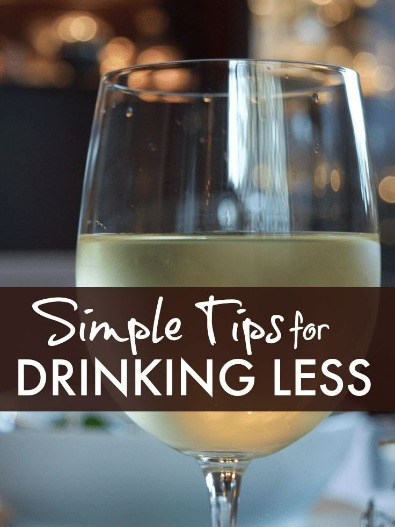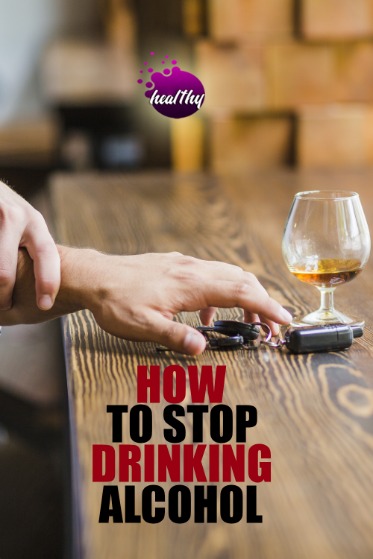Other pharmaceutical tools and medications are beneficial in helping to manage specific symptoms of alcohol withdrawal. We know how to taper off alcohol and live a sober life. Sleep aids, antidepressants, mood stabilizers, nonsteroidal pain medications, and gastrointestinal medications can be helpful.Although not specifically designed for addiction, Coach.me allows you to set a goal and helps you to work toward achieving your objective. After choosing your goal, the Coach.me community can help to keep you motivated – you can even hire one of their world-class coaches.Because it is not yet known whether any amount of alcohol is safe for a developing baby, women who are pregnant or may become pregnant should not drink. Even moderate amounts of alcohol can significantly impair driving performance and your ability to operate other machinery, whether or not you feel the effects of alcohol. Use the money that you are no longer spending on drinking to do something fun with your family or friends. Go out to eat, see a movie, or play sports or a game. Mindfulness helps you gain greater distance from your thoughts and urges, making it easier to avoid relapse and improving your overall quality of life.
What Are The Most Effective Ways To Quit Drinking?
Here are some tips on how to help an alcoholic stop drinking. There are so many Facebook groups, full of people determined to stop drinking, including the Unexpected Joy of Being Sober and Club Soda. I also follow Alcohol Explained, and Soberful I found these really inspiring and very supportive. But for many others, myself included, they’re a life-saver.Talk to your healthcare providers for support and guidance if you find yourself unable to manage these triggers. Ria Health offers treatment for alcohol addiction via telemedicine. Our program includes medication for alcoholism, recovery coaching, online support groups, medical consultation, and digital tools to track your progress. The whole process is flexible, and can be conducted from the comfort of home. If you’re ready to change your relationship with alcohol, get in touch with us today, or learn more about how it works. While becoming sober is the essential first step, it is just the start of your recovery from alcohol addiction or heavy drinking. While rehab or professional treatment can put you on the road to recovery, you will need to create a new, meaningful life where you do not drink to maintain long-term sobriety.Instead of taking a drink to calm anxiety, try affirmations, deep breathing, or meditation. Letting others know about your choice to stop drinking may help motivate you to stick with your decision.

Keep this list so that you can renew your commitment from time to time. This will help remind you of the reasons you wanted to quit in the first place. Ask a friend or family member to be on-call when you face a situation that makes you want to drink. Create a polite but firm way of refusing a drink when you are offered one. Talk with someone you trust when you have the urge to drink. Stay away from people you normally drink with or places where you would drink. Meredith Watkins, M.A., M.F.T.Meredith Watkins is a licensed marriage and family therapist who specializes in dual diagnosis and eating disorders.Of course, being sober doesn’t mean your glass has to be empty, either. There are more tasty nonalcoholic beverages on the market than ever before. Find one you like, and use it to replace your evening drink or give yourself something to sip on at a party. Plus, if people see your glass is full, they’ll be less likely to offer you a drink. Schedule a call and speak with a program expert to learn how Ria Health online treatment can help you quit drinking. Alcohol withdrawal can be intense and uncomfortable.Some symptoms—like changes in sleep patterns, fatigue, and mood swings—can last for weeks or months. You’ll likely begin to feel better around five days to a week after you stop drinking. It’s typical for withdrawal symptoms to begin within hours to a day or two after you have your last drink. Symptoms are often at their worst around 24 to 72 hours after you stop drinking. This “increased risk” category contains three different drinking pattern groups. Overall, nearly 20% of people who drink in this category have alcohol use disorder.It could be baking, doing a fitness DVD or simply arranging more early morning outings with the kids. It definitely feels like there’s some kind of psychologically soothing effect of cracking open that booze-free beer or popping that ‘Nosecco’ cork. I learnt recently that it takes alcohol seven minutes to hit the brain, so perhaps it’s not too dissimilar to that fake initial ‘relief’ you get when drinking the real thing.If your current life revolves around alcohol use, you might need to choose new friends or a new lifestyle. To stay focused on your goal and succeed, think through ideas to help you stop using alcohol on your own. For example, make a list of people and places in your life that have nothing to do with alcohol use. If you have withdrawal symptoms, such as trembling hands, when you go without alcohol, you should not try to quit on your own. Several medicines can help you quit drinking by getting rid of the craving for alcohol and blocking its effects. Ask your provider if one may be a good choice for you.
How To Know When Its Time To Cut Back
If you feel comfortable doing so, bring up your challenges to your primary healthcare provider. Finding a therapist can also be a great starting point if you aren’t comfortable opening up to your healthcare provider. If you’re having a hard time sticking to your goal or just want some extra guidance, consider reaching out for professional support. It’s normal to struggle when making big changes, but good self-care practices can help you manage overwhelming feelings and take care of your mind and body. Instead of going to your usual restaurant for dinner and drinks, why not try a new place that doesn’t serve alcohol? You’ll get to experience something out of the ordinary without feeling tempted to drink. When alcohol makes up part of your typical routine, drinking can become something of an automatic response, especially when you feel stressed or overwhelmed.Many clergy members, social workers, and counselors also offer addiction treatment services. Our mission is to provide empowering, evidence-based mental health content you can use to help yourself and your loved ones. Once you’ve cut back on your drinking (so you’re at or below the recommended guidelines), examine your drinking habits regularly to see if you’re maintaining this level of drinking. Some people attain their goal only to find that old habits crop up again later. Most people who successfully cut down or stop drinking altogether do so only after several attempts. You’ll probably have setbacks, but don’t let them keep you from reaching your long-term goal. There’s really no final endpoint, as the process usually requires ongoing effort.
Patient Support
Hang out with people who will help you not to drink alcohol. Ask them if they would not drink alcohol around you. We’re here 24/7 to help guide you or your loved on through rehab and recovery.By completing a few activities each week, Happify aims to improve your life satisfaction and empower you to fight back against negativity. The app’s games and activities can be used anywhere – on your computer, tablet, or smartphone.And as a result, the chances of experiencing a relapse remain very high. By the simplest definition, a relapse is when a person returns to using alcohol after a period of abstinence. Many people in recovery face a consistent risk of a relapse. Hence it’s a common and accepted part of a recovery journey. To avoid triggers and temptations at home during or after your detox process, make sure to clean out your living space of all alcoholic drinks.
- This is an opportunity for your brain power to grow and evolve as you begin to participate in the same activities as you have before, but while sober.
- Self Recovery is ideal for combating underlying causes of addiction for busy people.
- If you or a loved one has symptoms of DT, seek immediate emergency medical care.
- Your anxiety will decrease, your skin will look better and you may lose weight.
But unlike disulfiram, naltrexone does not make you feel sick if you drink alcohol while taking it. You can still quit alcohol even if you get the worst symptoms. The safest way is to stay at a hospital or an alcohol treatment center until you’re through withdrawal, usually two to seven days.
Alcohol Problems: How To Stop Drinking
Examples of alcohol treatment programsResidential treatment involves living at a treatment facility while undergoing intensive treatment during the day. The first step is often to consult your primary care doctor or GP. Your doctor can evaluate your drinking patterns, diagnose any co-occurring disorders, assess your overall health, and offer treatment referrals. They may even be able to prescribe medication to help you quit.

Alcohol addiction rehabs offer a safe, secure and comfortable environment during the withdrawal phase. Inpatient rehab facilities offer a safe, supervised environment for patients struggling with alcohol addiction. With 24-hour care, this is the most intensive form of treatment and typically entails 30, 60 or 90-day programs. Don’t let the fear of possible withdrawal symptoms prevent you from getting the help you deserve. Learn more about treating alcoholism and support options by reaching out to a treatment provider today. The process of tapering yourself off alcohol begins with planning. First, you need to identify how much you have been drinking.
Remove Alcohol From Your House
15 Ask a doctor about medication and other resources. She enjoys interviewing medical experts and researchers about their work and is passionate about communicating accurate and relevant health information to the public.
